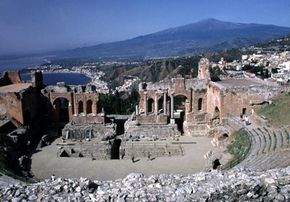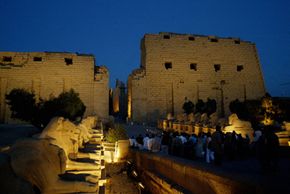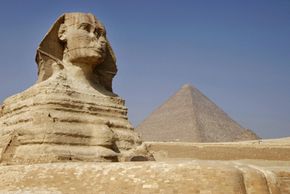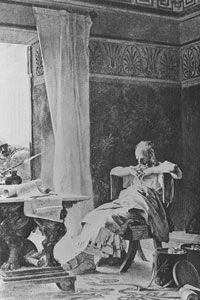The sitcoms you watch on TV have their roots in classical Greek comedy. The algorithms that fuel the Internet infrastructure you use are based on Greek mathematics. The doctors that save lives every day first take an oath based on a treatise written by the Greek physician Hippocrates. Even the scientific method dates back to ancient Greece.
We here in the modern world owe much to the advancements of the classical Greeks, that much is clear. But have you ever wondered where the Greeks got their ideas?
Advertisement
From 1900 to 1100 B.C., a great civilization reigned over what is now present-day Greece. The Mycenaens created works of art, established trade with other nations and lived in great cities. And then suddenly, mysteriously, the Mycenaean culture collapsed. Greece fell into darkness.
Nomadic tribes came from the North to where a bustling, urbane civilization once stood. Trade ceased, and Greece turned inward. For 500 years Greece stood silent, in what historians now call the Greek Dark Ages. And then, almost overnight in historical terms, a new dawn broke over Greece. Homer created his epic poems the "Iliad" and the "Odyssey," emphasizing honor and virtue to his new countrymen. Trade resumed, once separate city-states united into a democratic republic. Classical Greece was born.
Where did this meteoric rise to prominence come from? Scholars attribute much of Greece's development to its internalization. For 500 years it was peacefully allowed to redevelop itself, astoundingly without any outside threats. But the loftiest of the pursuits of the Greeks would not have been possible were it not for another nearby civilization, one that was established millennia before even Mycenae was founded. The culture was called Kemet. You know it as Egypt.
The civilization that built the Sphinx, raised the pyramids and built the world's first library also produced the world's first physician, created geometry and astronomy and were among the first to explore the nature of our existence. And they passed their knowledge along to the Greeks. Modern people, in turn, have benefited greatly from this early education.
So what exactly did the Greeks learn from the Kemites? Find out on the next page.
Advertisement



